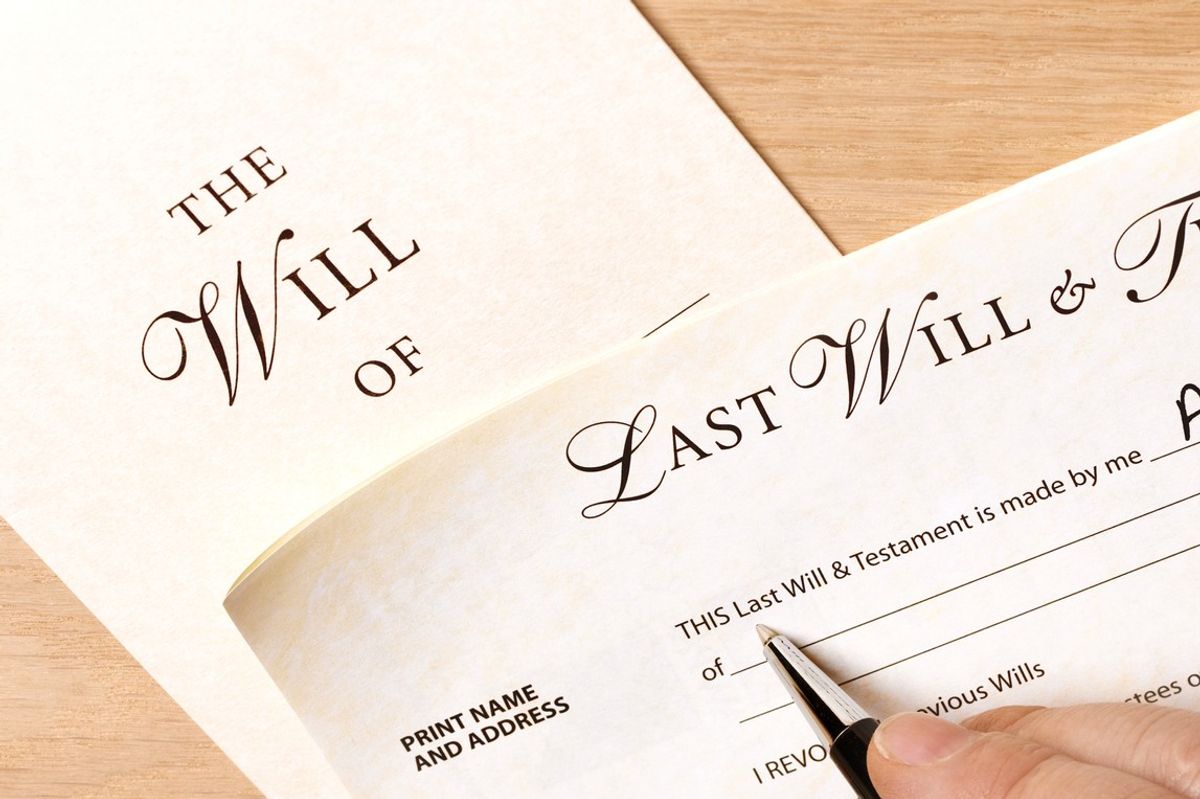Expert tax advisor Stuart Ritchie explains the fundamentals of inheritance tax in an exclusive guide for GB News members
STUART RITCHIE
Expert tax advisor Stuart Ritchie explains the fundamentals of inheritance tax and his four "building blocks" of estate planning in an exclusive guide for GB News members
Don't Miss
Most Read
Trending on GB News
Inheritance tax (IHT) is a concern for anyone who is wealthy and for whom the £325,000 nil rate band and £175,000 residence nil rate band, and their transferable equivalents, are insufficient to protect their estate from an IHT charge on death.
For an individual, that is wealth up to £500,000. For the survivor of a married couple or civil partners, wealth up to £1million is protected.
However, the residence nil rate band can taper away where wealth exceeds £2million and there are specific requirements relating to passing on their home.
For most individuals who are wealthy, it is probable then that they should be worried about IHT as on death, the IHT liability is due by the end of the sixth month after the person died.
If this does not happen, HMRC will charge interest on the outstanding sum. Tax on assets such as property can be paid in instalments over ten years, however, it is important to note that interest will still be charged on any outstanding amount.
What do I own?
Quite surprisingly, on a day-to-day basis, most people aren’t fully aware of exactly what they own. They might have a sense of what their wealth is but usually not on a granular level.
However, that viewpoint changes as soon as they turn their attention to dealing with the potential liabilities due in a prospective IHT calculation. At the point of their death, everything they own – either directly or indirectly – needs to be listed.
Clearly, it’s advantageous if you do know what you own and how you own it.
That might be because you are the beneficiary of a trust fund; or because you have interests in a financial structure such as a limited company that owns your business or a series of assets.
Knowing this information will go a long way in helping you determine who should receive your wealth when you die.

Expert tax advisor Stuart Ritchie has suggested four building blocks of estate planning
GETTY
The fundamentals of inheritance tax planning
It is vital that you can quantify what your potential IHT liability would be on your death. Knowing that information could have a significant impact on your decisions on who gets your money when you die.
This is especially true if you presume that an IHT liability will automatically arise when you die, when in fact, there may be no IHT liability, or it may be much less than you expect.
Such incorrect assumptions can, and do, lead to unnecessary decisions, which then result in poor outcomes, all for the want of full and complete professional advice.
Conversely, in circumstances where a large IHT liability is unavoidable, this too can be problematic. On the other side of the coin, family members now face the possibility of disposing of treasured assets, including property and heirlooms, in order to meet death duties.
Neither outcome is ideal, but these considerations demonstrate the significant advantage of knowing in detail what you actually own before making any hasty evaluation of how to leave your Estate.
It’s important to understand that IHT planning isn’t simply an IHT calculation of what’s payable on your death. It’s also about understanding the fundamentals of IHT planning.
Once you understand the fundamentals, IHT will not become an unwelcome, unpleasant issue that needs to be dealt with at the time of your death.
Rather, it’s an issue that can be planned for with multiple, generous solutions - some of which can be enjoyed during your lifetime - which can reassure you that IHT will not be such an onerous problem for your loved ones.
The four building blocks of Estate planning
Putting all of this into context, the four building blocks of Estate planning are:
1. Assessing your personal wealth
This first building block is where you need to consider the size of your personal wealth and make a proportionate plan.
There is no point having the most sophisticated Estate plan if your wealth is consumed by the professional costs of implementing that plan.
With larger amounts of personal wealth, a greater level of planning for your Estate may become appropriate.
2. Lifetime giving
The second building block is to consider what, if any, planning you should undertake in your lifetime.
This can include giving money to or for the benefit of your family; or it could be to outside your family, for example, to charitable causes.
Individuals tend to first consider lifetime giving when approaching their late fifties or their early sixties.
By the time of their late sixties and early seventies, if they have personal wealth in excess of their own needs, it is often being gifted to younger generations – children and sometimes grandchildren.
MORE FROM GBN MEMBERSHIP:

It's important to consider how to structure a Will, Stuart Ritchie said
GETTY3. Structuring your Will
The third building block is to consider how to structure your Will. This may be straightforward where tax planning is the main concern.
Alternatively, it may need to take into account special situations such as blended families or children with disabilities.
How you structure your Will is key to making sure your wishes are carried out after you have died.
4. Death benefits
This final building block is where you will make arrangements for those financial benefits that arise only on your death – the death benefits on your pension schemes and the proceeds on any life assurance policy.
These arrangements are made in your lifetime, but like your Will, sit in the background until you have died.
Taken together, these four building blocks of planning provide a comprehensive approach to dealing with your Estate, to ensure your IHT liability is minimised and that your wishes for your wealth are carried out.
Stuart Ritchie is an expert tax advisor with over 30 years of experience in the field. He founded his accountancy firm Ritchie Phillips LLP in 2003, through which he provides specialist taxation and accountancy services.
He is also a fellow of the Institute of Chartered Accountants in England and Wales (ICAEW), a member of the Chartered Institute of Taxation, and a chair of the ICAEW Tax Faculty Private Client Committee.
Stuart Ritchie's new book, Who Will Get My Money When I Die?, unpacks the seemingly complex world of wills and Inheritance Tax, equipping readers with the knowledge to plan their future with confidence.







